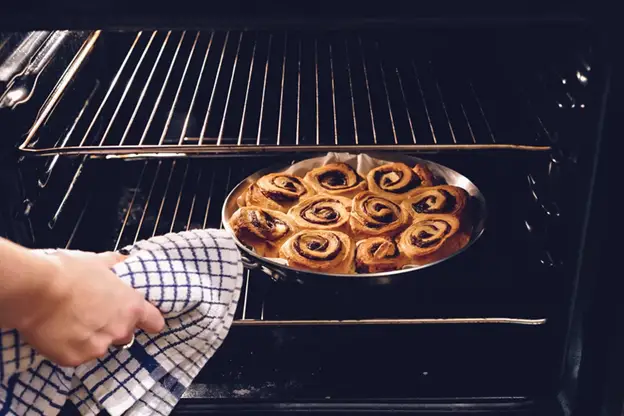4 Things to Know Before Choosing the Perfect Oven for Your Home
The narrative behind one of our kitchen essentials traces back centuries. These essentials refer to ovens. The earliest evidence reveals that ovens were first utilized in Central Europe. Historical documentation from the early 15th century indicates that France led the way in constructing ovens made from bricks and tiles. (Explore our latest piece on does salt kill yeast in pizza dough)
The 18th and 19th century also contributed to the evolution of our beloved ovens. Architect François de Cuvilliés built the first enclosed oven called the Castrol stove or stew stove, and Count Rumford was credited for improvising the former’s invention. Gas stoves, on the other hand, gas stoves were developed by an Englishman named James Sharp, and Percy Spencer was responsible for inventing microwave ovens.
The evolution and development of ovens throughout the years undeniably made cooking and baking at home more comfortable. Also, its corresponding advancement in function and features made every oven unique from one another. But what should you consider when choosing the right oven for you?
What is My Ideal Size?
Before rushing to the appliances store and having an oven buying spree, you should first consider the oven’s right size for your kitchen. Do you want your oven to stand out or blend in with your other things? Do you prefer bulky sizes over lean ones? Or do you like it lengthwise or sideways?
You should also consider your kitchen space. Try to get the dimensions of your kitchen and the existing appliances that are already there. Consider our apparatuses’ placement and how you will arrange them so that putting new ones will not decongest your space. Also, put into mind your house’s ventilation and ceiling level before choosing the right oven size.
Having these in mind will surely get you started in choosing the perfect oven for your home kitchen.
What Features Fit Your Preference?
Not all ovens have the same functions and features, and there is no “be-all-end-all” type of oven. Thanks to years of research and modern technology, different kinds of ovens are now emerging. Gas ovens operate using gas that supplies heat. It can cook faster and is ideal for cooking complete meals. However, it is a bit expensive, and precautions are always necessary.
A toaster oven is a small oven that is right for grilling and making toast. It can perform functions the same as that of electric ovens, but it can only manage small servings. Microwave ovens use microwave radiations to generate heat. It is commonly used for reheating food but is quick and easy to use. It is energy efficient but is insufficient for roasting.
Electric ovens are popular in the market because it is less expensive and easy to clean. Most households use electric ovens because of its convenience and is suitable for baking. One catch is that it cooks food slower and is hard to clean.
Other types of oven include:
Masonry ovens are good for baking pizza in a traditional way. It is composed of a brick chamber that can be wood-fired or coal-fired.
Earth ovens are ovens dug into the ground and then heated with the use of coal or firewoods. This type of oven goes back to ancient civilization but is still frequently used today.
Double ovens are suitable when you’re preparing for many. Its features include one oven and one microwave oven. However, it is much more expensive than the others stated above.
Convection ovens are a type of electric oven that uses a fan to circulate heat for even temperature. It is energy-efficient and budget-friendly.
Which is Which?
With all the given information above, what type of oven is for you, then? Another question that you should ask is, how much time will you be spending cooking and using your oven? Again, assess your needs, budget, and overall capacity. It’s also best to make sure your oven is operating correctly.
Practicality is key. Choosing the perfect oven for your home will not be as hard as possible, especially if you know what you want and how you want to use it. If you're venturing into starting your own business as a small-time bakery or restaurant, convection ovens are the way to go. At the same time, electric ovens are better suitable for everyday household use.
How Much Should I Spend?
The tricky part of buying an oven is its price value. Are you getting the function that you paid for? Is your purchase worth it? Being skeptical about where your money will go isn’t a bad attitude. It just shows how practical you are in spending your money before buying anything, whether appliances or others.
It is always ideal for you to plan your purchases and to allocate the right amount of money. Appliance sales are incredibly tempting, especially if you expect one, but always remember that it’s not compulsory to buy something on warehouse sales. Be realistic, and save your money.
Takeaway
A good oven should be long-lasting. That is, you should always get your money’s worth. Buying cheap ovens may cost you in the long run, and purchasing expensive ones may have its toll on its durability. Remember to keep in mind that your appliances should always benefit you and should serve its function efficiently.



